
-
 Afrikaans
Afrikaans -
 Albanian
Albanian -
 Amharic
Amharic -
 Arabic
Arabic -
 Armenian
Armenian -
 Azerbaijani
Azerbaijani -
 Basque
Basque -
 Belarusian
Belarusian -
 Bengali
Bengali -
 Bosnian
Bosnian -
 Bulgarian
Bulgarian -
 Catalan
Catalan -
 Cebuano
Cebuano -
 Corsican
Corsican -
 Croatian
Croatian -
 Czech
Czech -
 Danish
Danish -
 Dutch
Dutch -
 English
English -
 Esperanto
Esperanto -
 Estonian
Estonian -
 Finnish
Finnish -
 French
French -
 Frisian
Frisian -
 Galician
Galician -
 Georgian
Georgian -
 German
German -
 Greek
Greek -
 Gujarati
Gujarati -
 Haitian Creole
Haitian Creole -
 hausa
hausa -
 hawaiian
hawaiian -
 Hebrew
Hebrew -
 Hindi
Hindi -
 Miao
Miao -
 Hungarian
Hungarian -
 Icelandic
Icelandic -
 igbo
igbo -
 Indonesian
Indonesian -
 irish
irish -
 Italian
Italian -
 Japanese
Japanese -
 Javanese
Javanese -
 Kannada
Kannada -
 kazakh
kazakh -
 Khmer
Khmer -
 Rwandese
Rwandese -
 Korean
Korean -
 Kurdish
Kurdish -
 Kyrgyz
Kyrgyz -
 Lao
Lao -
 Latin
Latin -
 Latvian
Latvian -
 Lithuanian
Lithuanian -
 Luxembourgish
Luxembourgish -
 Macedonian
Macedonian -
 Malgashi
Malgashi -
 Malay
Malay -
 Malayalam
Malayalam -
 Maltese
Maltese -
 Maori
Maori -
 Marathi
Marathi -
 Mongolian
Mongolian -
 Myanmar
Myanmar -
 Nepali
Nepali -
 Norwegian
Norwegian -
 Norwegian
Norwegian -
 Occitan
Occitan -
 Pashto
Pashto -
 Persian
Persian -
 Polish
Polish -
 Portuguese
Portuguese -
 Punjabi
Punjabi -
 Romanian
Romanian -
 Russian
Russian -
 Samoan
Samoan -
 Scottish Gaelic
Scottish Gaelic -
 Serbian
Serbian -
 Sesotho
Sesotho -
 Shona
Shona -
 Sindhi
Sindhi -
 Sinhala
Sinhala -
 Slovak
Slovak -
 Slovenian
Slovenian -
 Somali
Somali -
 Spanish
Spanish -
 Sundanese
Sundanese -
 Swahili
Swahili -
 Swedish
Swedish -
 Tagalog
Tagalog -
 Tajik
Tajik -
 Tamil
Tamil -
 Tatar
Tatar -
 Telugu
Telugu -
 Thai
Thai -
 Turkish
Turkish -
 Turkmen
Turkmen -
 Ukrainian
Ukrainian -
 Urdu
Urdu -
 Uighur
Uighur -
 Uzbek
Uzbek -
 Vietnamese
Vietnamese -
 Welsh
Welsh -
 Bantu
Bantu -
 Yiddish
Yiddish -
 Yoruba
Yoruba -
 Zulu
Zulu
Automatic Rebar Spoke Thread Rolling Machine | Fast & Precise
Introduction: Revolutionizing Threading Technology
The construction industry continues to evolve with advanced machinery that enhances efficiency and precision. Among these technological innovations, the Automatic Rebar Spoke Thread Rolling Machine stands out as a game-changer for rebar processing. This comprehensive guide examines this transformative equipment, analyzing its technological advancements, applications, and the significant advantages it offers to construction projects worldwide.
Traditional threading methods like cutting or grinding have been largely replaced by cold-forming thread rolling due to superior strength characteristics. The cold rolling process displaces rather than removes material, creating threads with greater durability and fatigue resistance. Modern Automatic Rebar Spoke Thread Rolling Machines like Hebei Mote's ZA28-20 model represent the pinnacle of this technology, offering fully automated operation that reduces labor costs while improving consistency and throughput.
Manufacturer Spotlight: Hebei Mote Machinery
Hebei Mote Machinery Trading Co., Ltd.
As an industry leader in construction machinery manufacturing, Hebei Mote Machinery has established a reputation for innovation and quality. Their expertise in thread rolling technology has positioned them as a key supplier to infrastructure projects globally.
🌐 Official Website: www.motetools.com
✉️ Email: ygmtools2023@gmail.com
📱 Phone: +86 132 2328 6372
🏢 Address: XingWan Industrial Zone, Xingtai City, Hebei Province, China
The ZA28-20 model Automatic Rebar Spoke Thread Rolling Machine from Hebei Mote exemplifies the company's commitment to technological excellence. Engineered for continuous high-volume production, this machine reduces threading time per rebar by up to 70% compared to manual methods while maintaining precision within 0.01mm tolerances.
Technical Specifications
The ZA28-20 model offers industry-leading specifications for versatile applications across construction projects:
Automatic Rebar Spoke Thread Rolling Machine Key Specifications:
- Processing Diameter Range: 5-42mm
- Thread Pitch Capacity: 1-5mm
- Main Motor Power: 7.5KW
- Hydraulic Motor Power: 1.75KW
- Cooling Power: 90W
- Overall Dimensions: 1500×1510×1520mm
- Machine Weight: 1900 KG
- Production Capacity: 30-50 pieces per minute
- Thread Accuracy: ±0.01mm
Technical Parameters Comparison
| Parameter | ZA28-20 Model | Standard Competitor A | Premium Competitor B |
|---|---|---|---|
| Diameter Range (mm) | 5-42 | 8-36 | 5-40 |
| Pitch Range (mm) | 1-5 | 1.5-4.5 | 1-4.8 |
| Motor Power (Main/Hyd) | 7.5KW/1.75KW | 5.5KW/1.5KW | 11KW/2.2KW |
| Production Capacity | 30-50 pcs/min | 20-30 pcs/min | 35-45 pcs/min |
| Power Consumption | 9.25KW | 7KW | 13.2KW |
| Footprint (L×W×H mm) | 1500×1510×1520 | 1600×1500×1600 | 1400×1450×1500 |
Performance Visualization
Operational Mechanism
The working principle of Automatic Rebar Spoke Thread Rolling Machine involves two precisely engineered rolling dies that rotate in sync with the rebar material. The ZA28-20 model employs hydraulic pressure ranging from 10-14 MPa to create consistent thread forms through cold deformation rather than material removal. This process significantly enhances the mechanical properties of the threaded section.
Advanced Features
- Programmable Logic Controller (PLC): Allows operators to store multiple threading profiles for different rebar grades and diameters
- Digital Measurement System: Automatically verifies pitch diameter and thread depth with laser precision
- Automatic Lubrication System: Maintains optimum lubrication during operations, extending die lifespan
- Safety Interlocks: Dual-hand operation requirement with light curtains to prevent accidents
- Quick-Change Die System: Minimizes downtime during die replacement (under 5 minutes)
Image Gallery
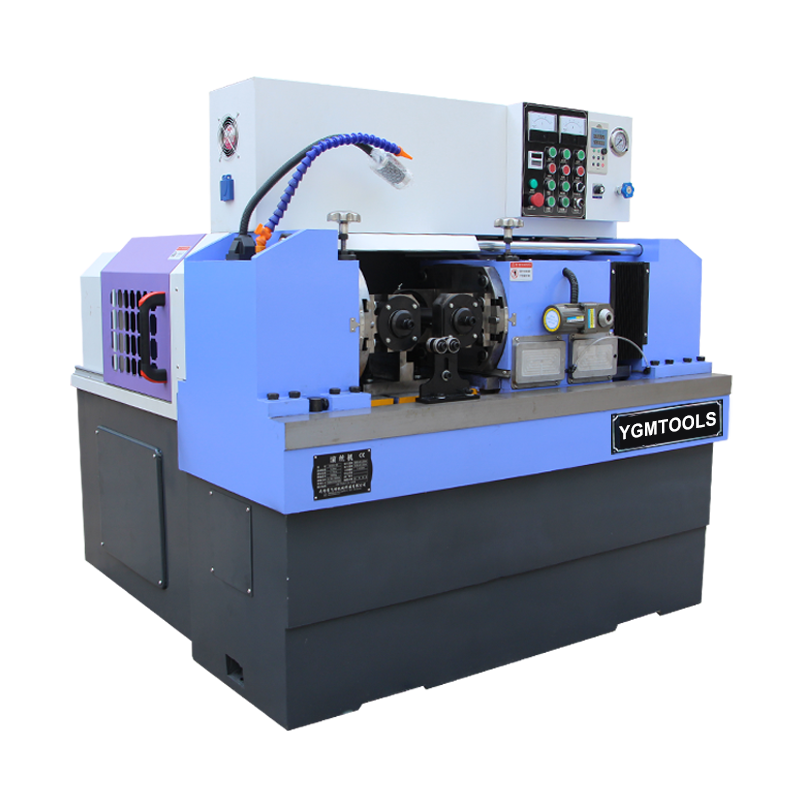
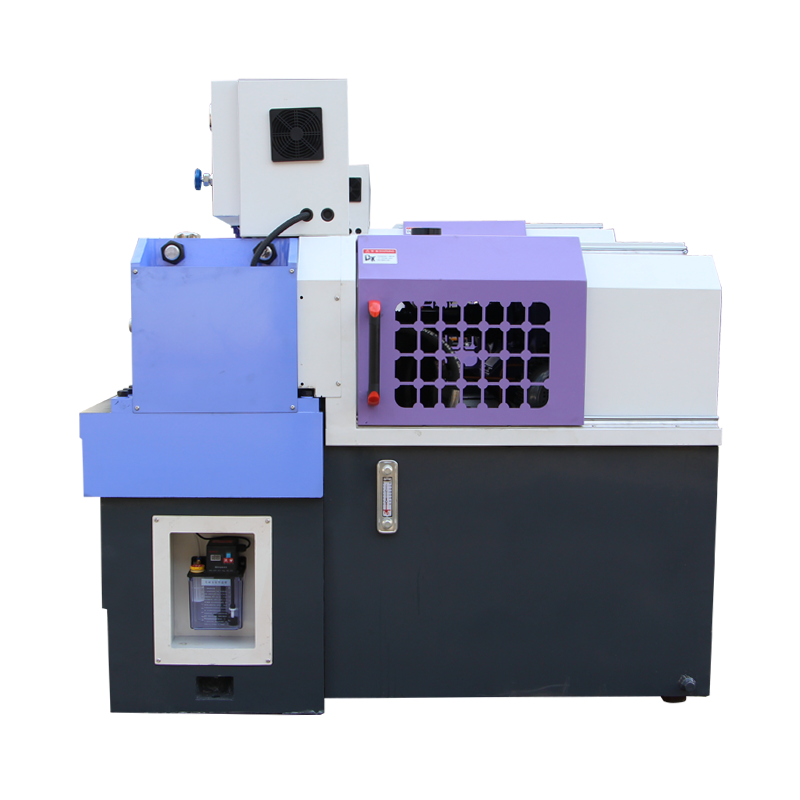
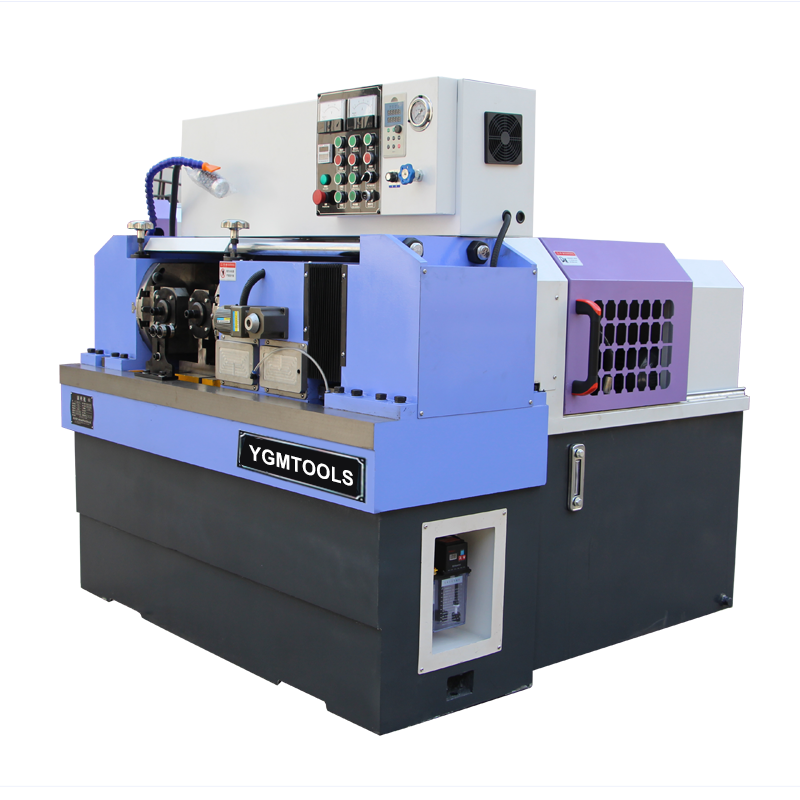

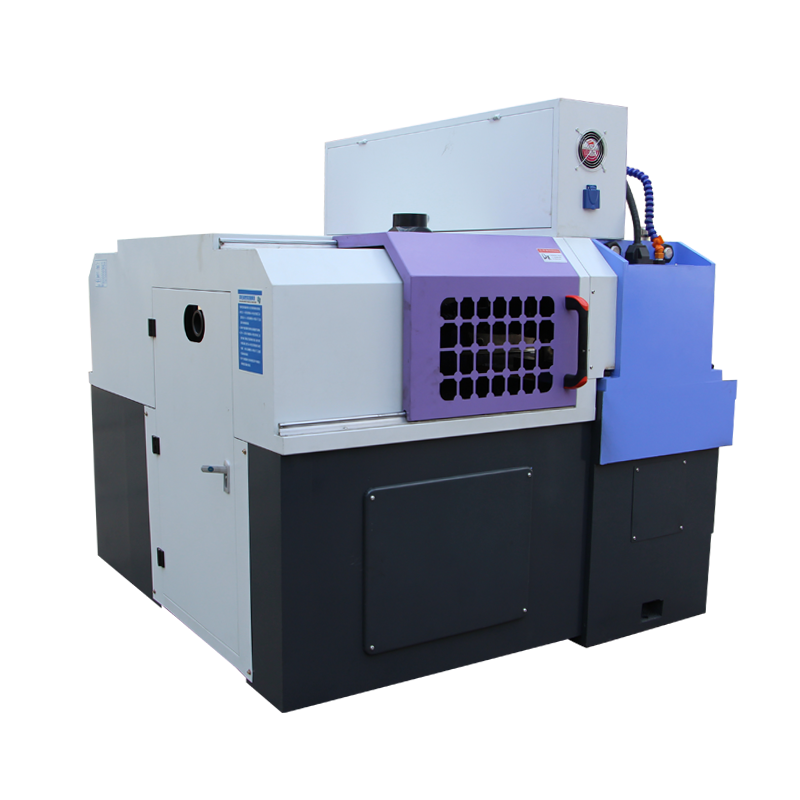
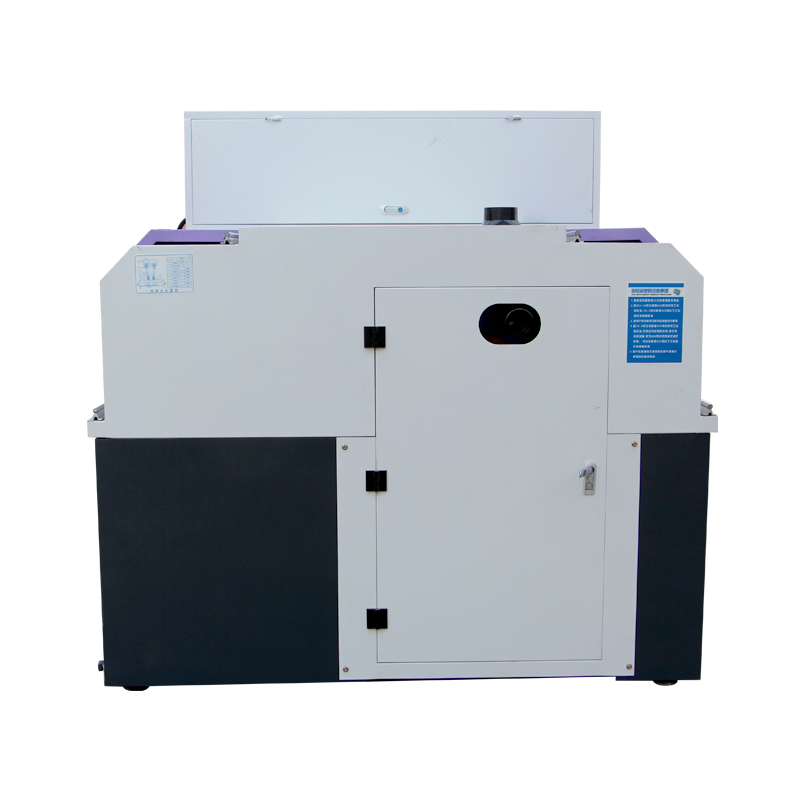
Industry Applications
The versatility of Automatic Rebar Spoke Thread Rolling Machine technology makes it indispensable across multiple construction sectors:
Infrastructure Construction
Critical for bridge piers, retaining walls, and elevated highway sections requiring consistent, high-strength threaded connections. Projects like the Hong Kong-Zhuhai-Macao Bridge demonstrated 15% acceleration in construction timelines through automated rebar threading.
Precast Concrete Facilities
Enables mass production of identical threaded rebar components with dimensional consistency critical for modular construction. Modern precast plants utilizing these machines report up to 40% reduction in rebar preparation labor costs.
Tunnel Construction
Essential for creating threaded segments for tunnel linings where connection strength directly impacts structural integrity. The Gotthard Base Tunnel project employed similar technology to process over 2.5 million threaded rebars.
Professional Q&A
Q1: What steel grades are compatible with the ZA28-20 thread rolling machine?
The machine processes carbon steel rebar from grade 300 to 600 with hardness up to 40HRC. For special alloy steels, die material and hydraulic pressure settings require adjustment according to material specifications.
Q2: What maintenance schedule is recommended for optimal performance?
Daily inspection of lubrication systems, weekly cleaning of guide rails, monthly hydraulic fluid analysis, and quarterly calibration of alignment systems. Die surfaces require polishing every 50,000 cycles.
Q3: How does thread rolling affect rebar mechanical properties?
Cold rolling increases tensile strength by 15-25% in the threaded area and improves fatigue resistance by 30-40% compared to cut threads due to work hardening and continuous grain flow.
Q4: What international standards govern rebar threading dimensions?
Key standards include ISO 6935-2 (Reinforcement of concrete), ASTM A615 (Deformed carbon-steel bars), BS 4449 (Carbon steel bars for concrete reinforcement), and GB/T 1499.2 (Chinese standard for rebar).
Q5: What safety certifications should the machine possess?
CE certification for European markets, OSHA compliance for North America, and GB standards for China. Essential safety features include emergency stop buttons at both ends, light curtains, and dual-hand operation controls.
Q6: How does environmental temperature affect machine operation?
Operation range is 5-40°C. Below 5°C requires preheating hydraulic oil to maintain viscosity. Temperatures exceeding 40°C require enhanced cooling and reduced continuous operation cycles.
Q7: What production tolerances can be achieved?
The ZA28-20 maintains thread pitch tolerance within ±0.015mm, major diameter ±0.02mm, and minor diameter ±0.025mm per ISO 965-1 Class 6g standards for commercial-grade threads.
Industry Trends
The global rebar processing equipment market is projected to grow at 5.8% CAGR through 2030 (Global Construction Review, 2023), driven by increasing infrastructure investments in developing economies. Technological advancements focus on:
- AI-Powered Quality Control: Real-time defect detection using computer vision systems that achieve 99.2% accuracy
- IoT Integration: Machines reporting operational data to centralized monitoring systems for predictive maintenance
- Energy Optimization: Regenerative hydraulic systems reducing power consumption by up to 25%
- Automation Upgrades: Robotic arm integration for continuous processing without human intervention
References
Construction Technology Review (2023). "Evolution of Rebar Processing Equipment." Retrieved from: https://www.contechreview.org/rebar-processing-evolution
International Journal of Civil Engineering (2022). "Mechanical Property Enhancement Through Cold Thread Rolling." Vol. 19(4), pp. 1125-1141. https://ijce.journals.org/article/1125
Proceedings of the Global Construction Summit (2023). "Automation in Rebar Fabrication." https://globalconstruct.org/proceedings/2023/automation-rebar
Materials Performance and Standards (2022). "Comparative Analysis of Thread Formation Techniques." ASTM Special Publication STP1620. https://astm.org/STP1620-threads
